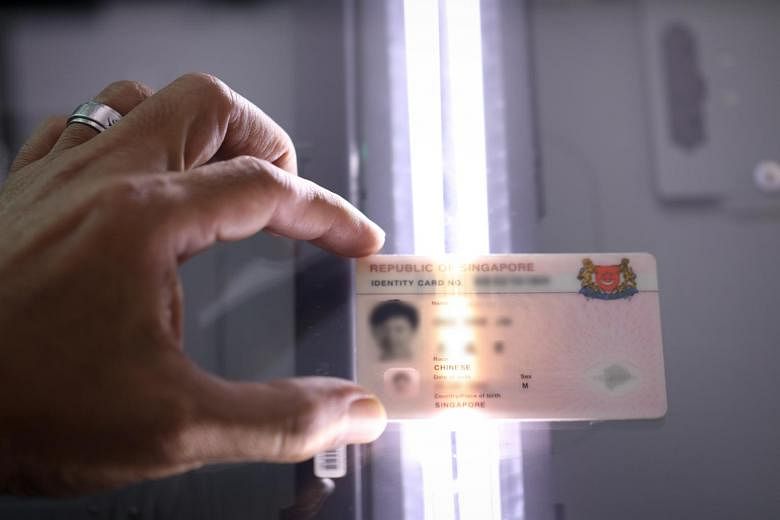SINGAPORE - A man, a Singaporean aged 28, has been charged with failing to change the residential address on his NRIC.
The National Registration Identity Card is the compulsory identity document issued to Singapore citizens and permanent residents. People must register for an NRIC within one year of reaching age 15, or on becoming a citizen or permanent resident.
The Straits Times looks at why the residential address on NRICs must be updated and how to do it.
Q: Why is it necessary to update the address on your NRIC?
A: The address listed on the NRIC is used by government agencies to contact Singapore residents for official purposes. For example, SingPass transactions such as the resetting of one's password and the national health survey by the Ministry of Health are administrated through mail using the residential address found on NRICs.
Under the National Registration Act, all NRIC holders need to report a change of address within 28 days of moving into a new residence, whether the residence is in or outside of Singapore. The Immigration and Checkpoints Authority said it is the people's responsibility to update their residential addresses to ensure that they remain contactable.
Q: How does one get it done?
A: The application for a change of address is now mostly done online with no charge, either personally or through a proxy. The proxies must provide the applicant's NRIC number and its date of issue to access the e-Service.
Since Oct 1 this year, the three-step process is done through ICA's website:
1. Residents can go to the change of address e-Service on the website and log in using their SingPass.
2. Applicants will receive a unique personal identification number (PIN) sent by mail to their new address. Applicants then enter the PIN via the e-Service to verify the new address. On verification, applicants will receive an instant acknowledgement that their change of address is successful.
3. Applicants will later receive a second mail containing a sticker with their new address, and must then fix the sticker on the back of their NRICs by following the instructions provided.
Q: Was it not handled by the police at neighbourhood police centres?
A: From Dec 1, the police will no longer be processing change of address requests. Singapore residents who are unable to transact online and have no proxies to assist them can visit ICA for assistance.

Q: Why are some people not updating their addresses?
A: Some do it to exploit their original addresses - for instance, they keep their parents' addresses on their NRICs in order to register their children at preferred schools which may be located nearby. Others who are renting a series of different places for short periods of time may believe it is troublesome to do so. ST understands that some people may be keeping old addresses on their NRIC for undesirable purposes such as avoiding loan sharks they have borrowed money from.
Q: What are the penalties for not doing so?
A: The penalty for failing to report a change of address is a fine of up to $5,000 or imprisonment of up to five years, or both.
Q: What if I am living somewhere else temporarily due to legitimate reasons, like when I am renovating my home?
A: As the law does not specifically define a "place of residence", what constitutes an offence is judged on a case-by-case basis and is subject to the investigator's assessment whether a person has committed an offence or not. If a person has the intention of going back to the registered address, he or she is unlikely to be viewed as an offender.


